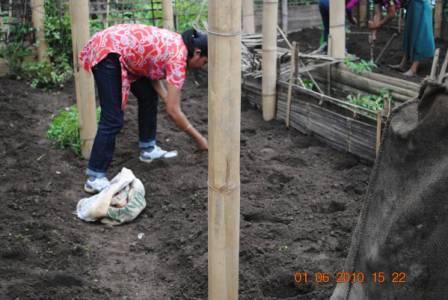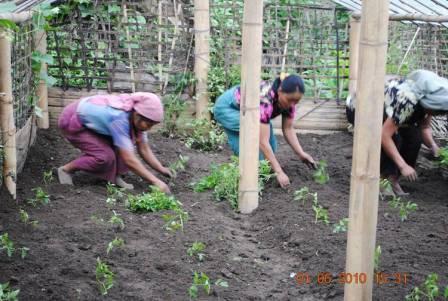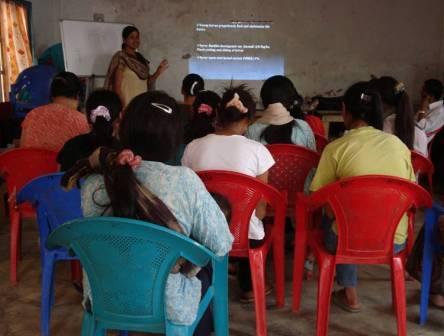Plant Protection
Plant Protection continues to play a significant role in achieving targets of crop production. The major thrust areas of plant protection are promotion of ensuring availability of safe and quality pesticides for sustaining crop production from the ravages of pests and diseases, streamlining the quarantine measures for accelerating the introduction of new high yielding crop verities, besides eliminating the chances of entry of exotic pests and for human resource development including empowerment of women in plant protection skills.
Keeping in view the ill effects of chemical pesticides such as development of pest resistance, pest resurgence, outbreak of secondary pests, pesticide residues in food, fodder, soil, air and water resulting in human health hazards and ecological imbalances, Integrated Pest Management (IPM)as the cardinal principle and main plank of plant protection strategy has been emphasized throughout the country. IPM is an eco-friendly approach aimed at minimum use of chemical pesticides by employing available alternative methods for pest control like cultural, mechanical and biological and use of bio-pesticides.
BIOFOR PF-2: Safe organic pesticide for crop disease management
A living soil is the basis of organic farming. A live healthy soil with proper cropping patterns, crop residue management and effective crop rotation can sustain optimum productivity over the years without any loss of fertility. Organic farming is the holistic production management system that avoids use of synthetic fertilizers and pesticides, minimizes pollution of air, soil and water and optimizes the health and productivity of independent communities of life, plants and animals and people. It envisages a comprehensive management approach to improve soil health, ecosystem of the region and quality of the produce. Advantages of organic farming:
- Helps in maintaining environment health by reducing the level of pollution.
- Reduces human and animals hazards by decreasing the level of residues in the product.
- Ensures optimum utilization of natural resources for short term benefits and helps in conserving them for future generation.
- Makes agriculture sustainable.
- Improves the physical and chemical properties of soil.
- Helps in conserving natural resources for future generation.
BIOFOR PF-2 is an organic biopesticide containing beneficial microbes-Pseudomonas fluorescence & Trichoderma harzianum . It has ability to biologically control Ginger rot and wilt diseases of Tomato, Brinjal, Potato & Chilli.
Benefits of BIOFOR PF-2:
It is safe to health and environment as there is no residual or environmental hazards; It is being plant-growth-promoting, beneficial to the plant, soil and environment; The delivery system is very easy and does not need sophisticated equipments; It improves soil health as it has the ability to convert unavailable phosphatic nutrients; It increases soil nutrients, rejuvenate soil, enhances plant growth and combat soil borne diseases.It is economic compared to application of commercial chemicals and antibiotics.
Application Methods:
Seed treatment: Make a paste of Biofor with water and sticker (Rice gruel/Revive) and treat the seeds for 1 hour.
Requirement:
| For Tomato, Brinjal and Chilli - | 100g/kg seed |
| For Potato & Ginger - | 10kg/qt seed or rhizome |
OFT on Soft rot management in Ginger
Seedling treatment : (For Tomato, Brinjal and Chilli) The roots of seedlings are dipped in the paste of Biofor pf-2 for 1 hour before transplanting.
Requirement : 1 Kg Biofor for 1000 seedlings.
Soil treatment : Mix 1 Kg Biofor with 10 kg dry cowdung or Vermicompost and apply the mixture @ 100 g/plant.
Requirement : 100 Kg Biofor/ha
Soft rot is the common field disease of ginger in the district. Therefore, an On Farm Trial has been carried out on management of soft rot of ginger in Gidemi village using Biofor-PF2 in farmers field.

OFT on Biofor PF-2 application in Tomato

Transplanting of Tomato var.Rohini

Training on Insect pest of tomato in Pholami village